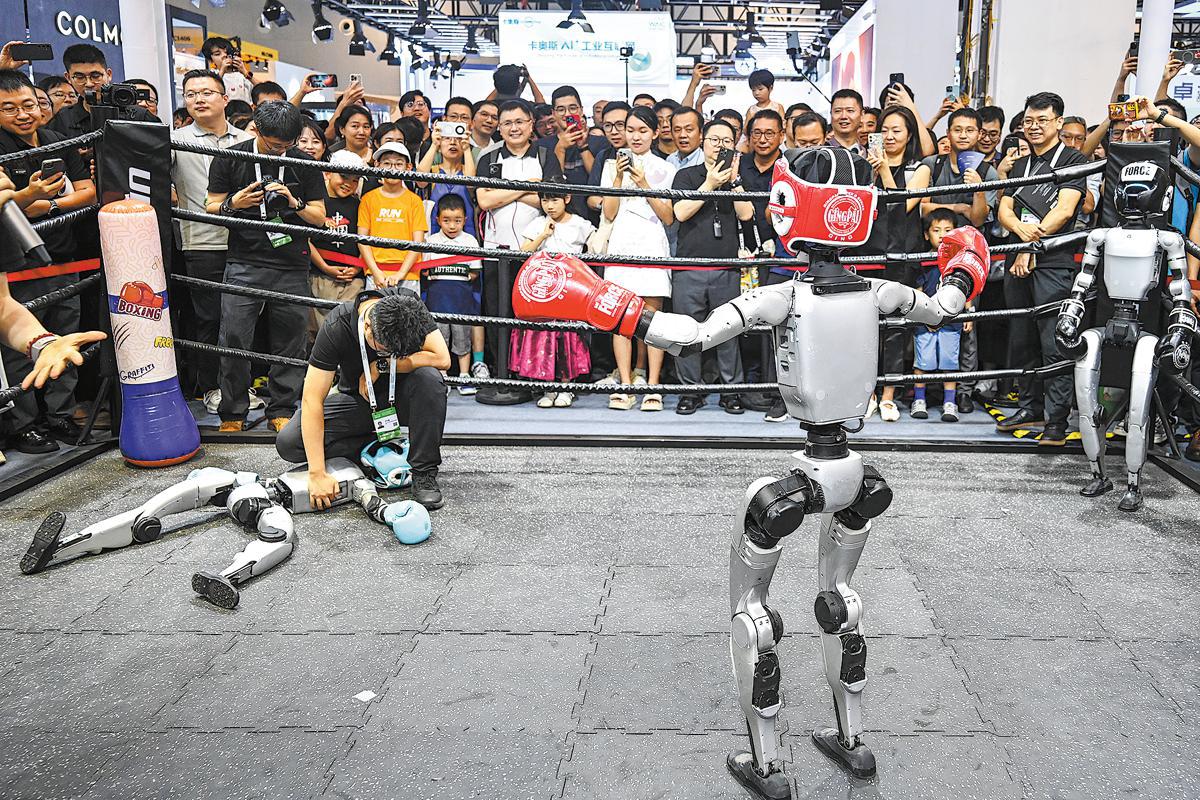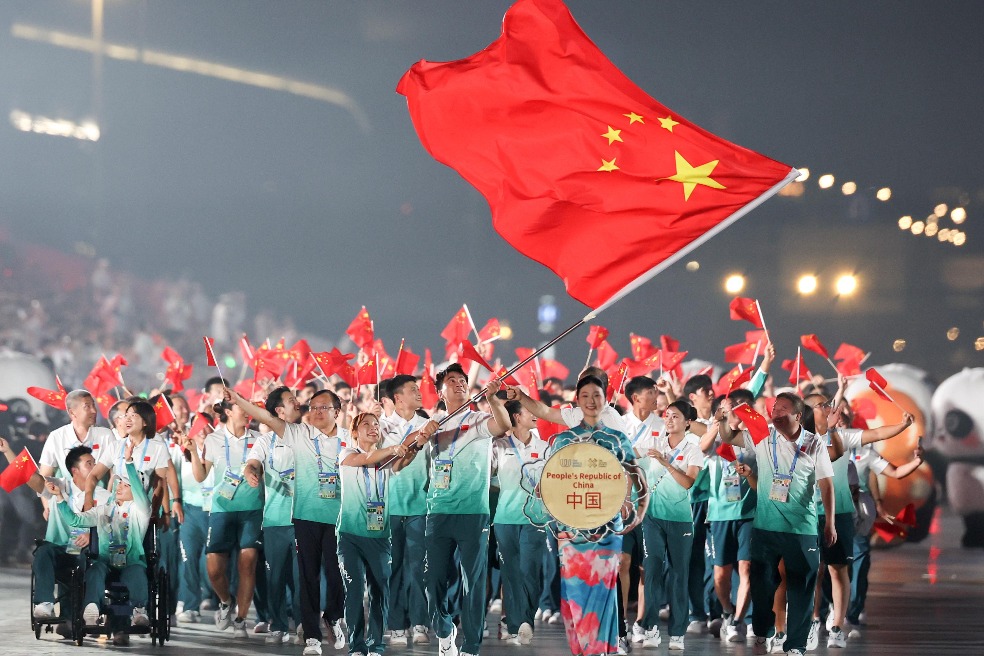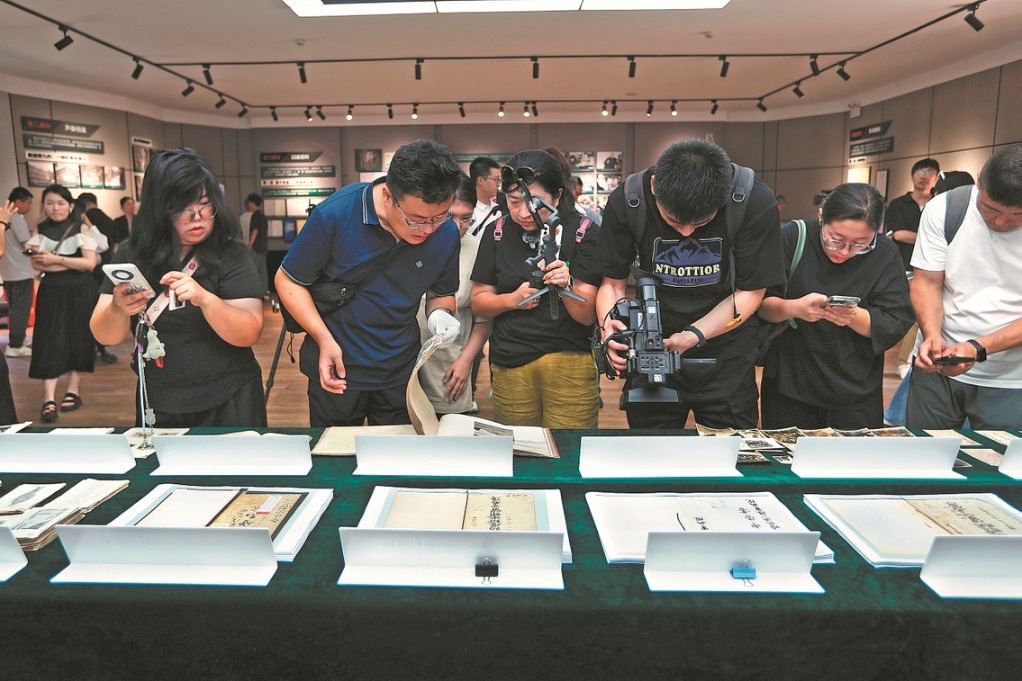AI powering China's industrial evolution
'Industry plus artificial intelligence' cresting across Chinese manufacturing landscape, driven by tech companies scrambling to develop AI agents to solve tasks


The momentum is palpable.
Huawei entered the fray in June with FusionPlant 3.0, a strategic platform explicitly designed to accelerate the creation and deployment of industrial AI agents and smart applications.
The message from these companies is unequivocal: industrial AI is no longer speculative; it's operational, delivering concrete value.
Concurrently, companies like Shanghai Wisdom Information Technology Co Ltd are pioneering "industrial AI agents codriven by large language models", creating novel digital applications and multimodal AI cooperation specifically designed for manufacturing environments, focusing on end-to-end optimization.
Sector-specific revolutions are also unfolding, exemplified by Dongfang Precision Group's subsidiary, which is laser-focused on AI-driven transformation for the packaging industry, offering tailor-made industrial internet platforms and digital upgrade solutions.
Despite the impressive strides, the path forward demands more than isolated technological triumphs. Industry leaders and analysts alike stress that the next phase of industrial AI maturity hinges on robust ecosystem collaboration to overcome persistent hurdles.
The challenges, however, are multifaceted and deeply interconnected. Data fragmentation remains a major barrier, with inconsistent data hindering AI's full potential, and breaking down these walls necessitates industry-wide standards and cooperation, experts said.
Meanwhile, significant technological hurdles persist, including the limited generalization capabilities of large models while tackling highly specific, complex industrial tasks, and the critical bottleneck of computational power. "Computing power scarcity fundamentally constrains development. Yet utilization efficiency in training and inference is often paradoxically low," said Cao Kai, director of Smart Industrial Solutions at Baidu Smart Cloud.
The transformation is undeniable. From Lenovo's streamlined global supply chain to the flawless fabric rolling off AI-monitored looms, intelligent agents are demonstrably enhancing productivity, slashing costs, and enabling unprecedented precision.
As these agents proliferate, learning and adapting within complex industrial ecosystems, they are evolving from sophisticated tools into the very central nervous system of modern Chinese manufacturing, experts added.
"Innovation stands as a pivotal force propelling the high-quality advancement of the manufacturing sector, and companies are increasingly assuming central roles in driving innovation," said Li Jinghong, an academician at the Chinese Academy of Sciences and a professor at Tsinghua University.
Ma Jun, senior vice-president of Volvo Group and president of Volvo (China) Investment, said: "We see great potential in China's AI growth. With its vast market and diverse application scenarios, China provides a unique space for AI innovation. I look forward to seeing more creative AI solutions in the transportation and infrastructure sectors, to help reduce logistics costs further and support sustainable development in China and globally."
masi@chinadaily.com.cn
























